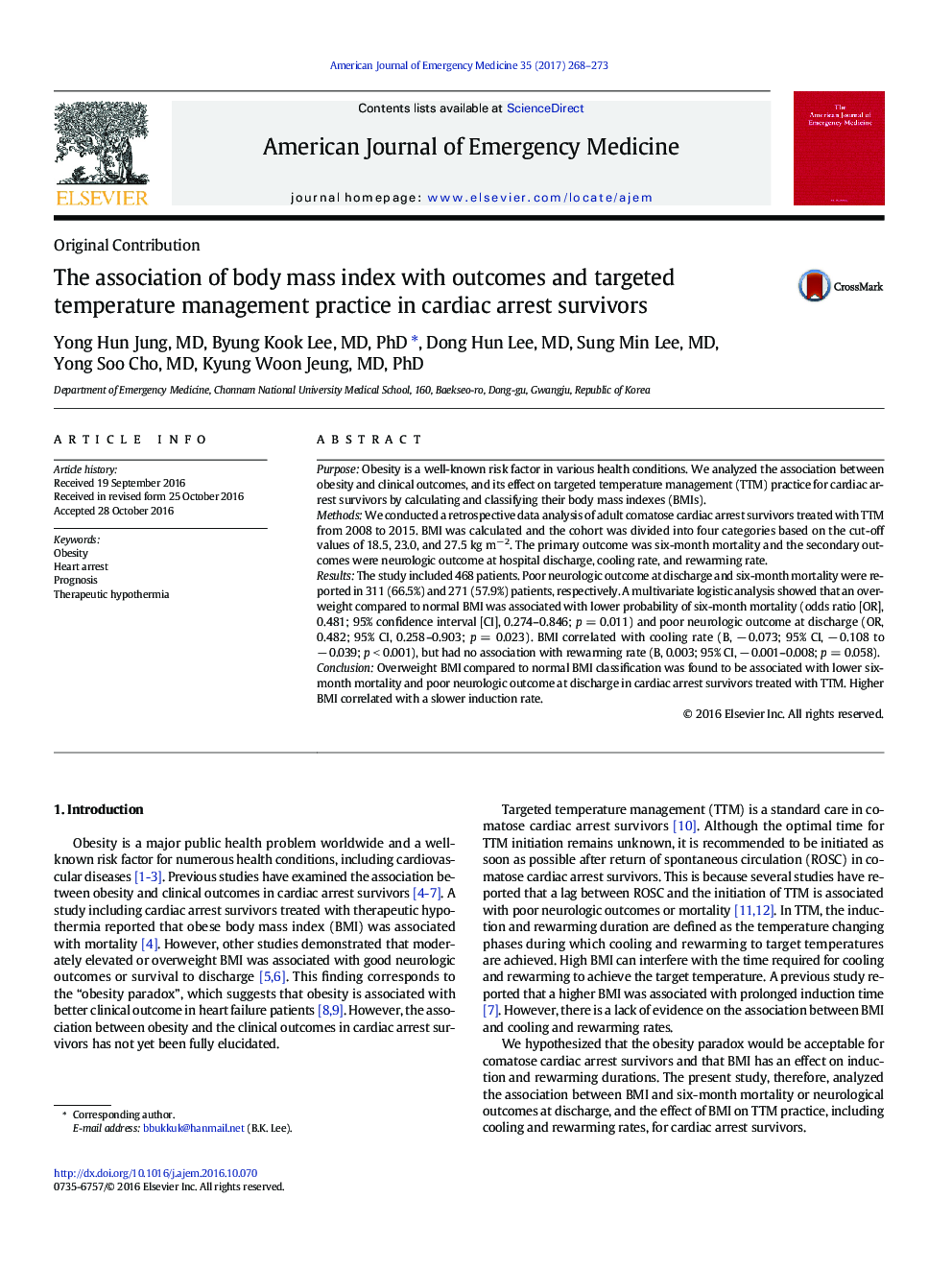| Article ID | Journal | Published Year | Pages | File Type |
|---|---|---|---|---|
| 5651022 | The American Journal of Emergency Medicine | 2017 | 6 Pages |
PurposeObesity is a well-known risk factor in various health conditions. We analyzed the association between obesity and clinical outcomes, and its effect on targeted temperature management (TTM) practice for cardiac arrest survivors by calculating and classifying their body mass indexes (BMIs).MethodsWe conducted a retrospective data analysis of adult comatose cardiac arrest survivors treated with TTM from 2008 to 2015. BMI was calculated and the cohort was divided into four categories based on the cut-off values of 18.5, 23.0, and 27.5 kg mâ 2. The primary outcome was six-month mortality and the secondary outcomes were neurologic outcome at hospital discharge, cooling rate, and rewarming rate.ResultsThe study included 468 patients. Poor neurologic outcome at discharge and six-month mortality were reported in 311 (66.5%) and 271 (57.9%) patients, respectively. A multivariate logistic analysis showed that an overweight compared to normal BMI was associated with lower probability of six-month mortality (odds ratio [OR], 0.481; 95% confidence interval [CI], 0.274-0.846; p = 0.011) and poor neurologic outcome at discharge (OR, 0.482; 95% CI, 0.258-0.903; p = 0.023). BMI correlated with cooling rate (B, â 0.073; 95% CI, â 0.108 to â 0.039; p < 0.001), but had no association with rewarming rate (B, 0.003; 95% CI, â 0.001-0.008; p = 0.058).ConclusionOverweight BMI compared to normal BMI classification was found to be associated with lower six-month mortality and poor neurologic outcome at discharge in cardiac arrest survivors treated with TTM. Higher BMI correlated with a slower induction rate.
